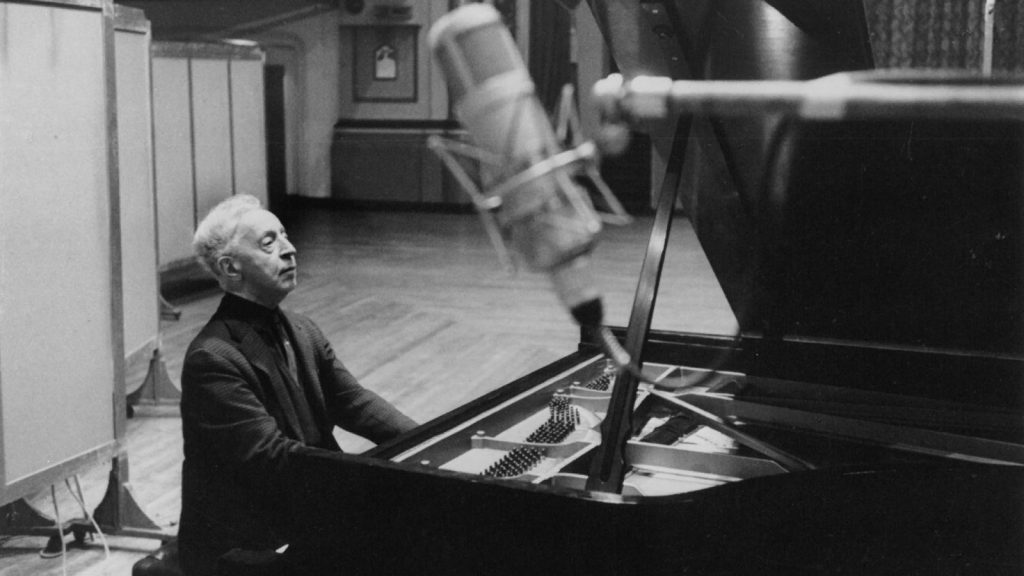ARTHUR RUBINSTEIN
The pianist, the legend
March 2020

The pianist Arthur Rubinstein, born on January 28th, 1897 in Lodz (Poland) and dead in 1982 in Geneva as a result of a sudden infection, is considered one of the greatest names in musical mythology of our century. He was always a firm cosmopolitan and his extraordinary optimism was capable of extracting the maximum dose of happiness from every minute of his existence.
He began his piano studies at the age of 3 and when he was 5 he had his first public concert. At the age of 10 he was spotted by the well-known violinist Joseph Joachim, who was notably admired by the abilities of the young pianist. Therefore, he decided to take responsibility for the musical and pianistic education of the young Arthur.
At the approximate age of 15 he studied with the teacher Ignaz Pederewski and a year later he went to study in Paris with Paul Dukas and Maurice Ravel. Between 1919 and 1920, the young pianist was already a frequent guest on the entire world-class concert circuit. Around 1930 he became a known and recognized figure worldwide. The good reviews of his concerts reached the most remote places in the world. His biographers comment that during those times he spent between 12 and 16 hours a day studying and improving his piano playing technique.
Not only his performances were breathtaking but Rubinstein also surprised us with his versions of traditional pieces, which at the time were accused to be out of date. An interpreter who was able not only to maintain himself, but to renew himself in technique and style. Works by Beethoven, Chopin, Schubert, or Brahms were renewed under his genius hands, brilliantly adapting them to the more modern interpretive criteria.
One of the reasons why his pianism is still very present and relevant is the personal touch that he provided to the beautiful the sound that he achieved. Only with the first notes you can easily identify the artist. The beginning of Poulenc’s movements or the initial measures of the Appasionata are sufficient to recognize his treatment of color, melody and the use of the pedal. Rubinstein’s charismatic sound was from his youth, clear, crystalline and consistent.
The first impression of the relatively young Rubinstein was of improvisational genius. But his progressive fidelity to what was written in contrast to the general overcoming of technique, sometimes supposed a problem for him. So when he had already reached his musical maturity, Rubinstein decided to dismiss certain works that had been in his repertoire. “I don’t dare to play Iberia now,” he once said, “because young pianists study a lot and play everything that is on paper.” He then devoted himself to the romantic repertoire. He delved with lyrical and brilliant gravity into Brahms’s pianism and he masterfully reinterpreted his already virtuous Chopin works.
Rubinstein was a maestro in every sense of the word and the heritage of his pianism will last forever.
